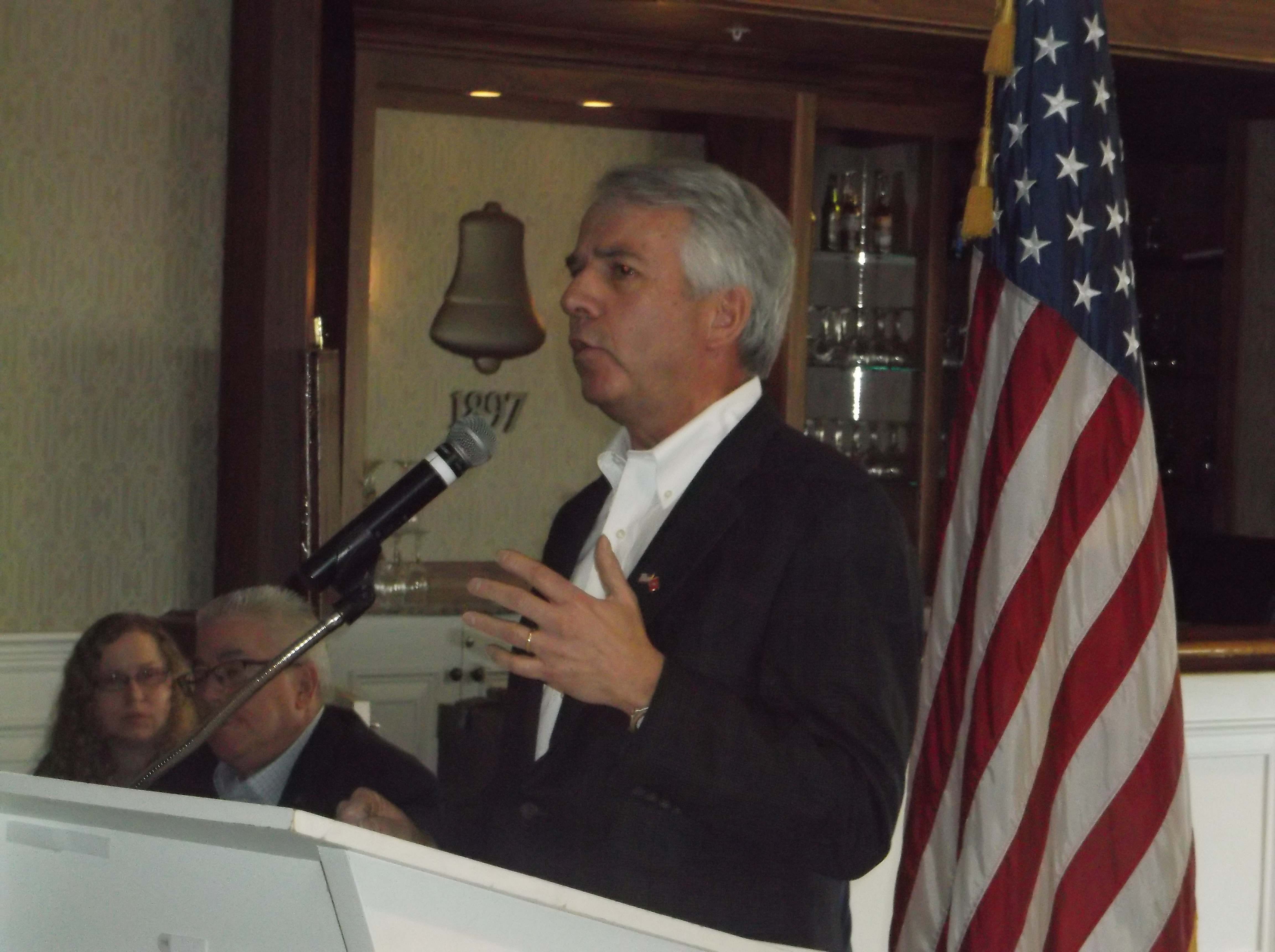Menendez v. Hugin, or the Encumbrance of Allegations Versus Republican Futility

BY CARL GOLDEN
Since 1972, there have been 15 United States Senate elections in New Jersey. The Republican Party has lost them all.
Moreover, if incumbent Democrat Sen. Robert Menendez wins re-election in November, by the time his and Sen. Cory Booker’s terms expire, the party will have held both Senate seats for more than a half century.
If it was Little League baseball, it would be time to invoke the mercy rule.
The only two breaks in the Democrats’ shutout were the result of appointments rather than elections. The first occurred in 1982, when Gov. Tom Kean named investment banker Nicholas Brady to the Senate seat vacated by the resignation of Harrison Williams following his conviction in the Abscam scandal. The second occurred in 2013 when Gov. Chris Christie appointed his Attorney General Jeffrey Chiesa to a vacancy caused by the death of Sen. Frank Lautenberg.
Brady served eight months and Chiesa six (neither chose to seek the full term) before normalcy returned and voters supported Democrats.
It is not as if Republicans are routinely blown out in statewide elections. Of the nine governors chosen since 1969, for instance, five were Democrats and four were Republicans —the definition of a swing state.
Moreover, of the four Republican governors, three won re-election, while of the four Democrats elected prior to current Gov. Phil Murphy, only one served two full terms.
The state’s voters, it appears, perceive a sharp distinction between U. S. Senators and governors and act upon it.
Senators are but two of one hundred who deliver speeches, attend seemingly endless committee meetings and vote occasionally.
They convene some 150 miles away and are swallowed up in the torrent of news coverage flowing from Washington, D.C. There is safety and anonymity in numbers and — aside from scandal — close public scrutiny is fleeting and scant.
Governors, on the other hand, are singular individuals in the political/government environment, highly visible and whose actions impact every citizen. Senators are remote; a governor is an everyday presence.
Whatever the issue of the moment, the public turns to the governor for answers. They expect rapid responses to resolve everything from the multi-billion dollar school aid program to timely snowplowing to the burnt-out traffic light down the block.
U. S. Senators do not command that level of attention. They are but two of one hundred votes, often cast without meaningful impact, while a governor’s action is immediate and decisive.

The Republican futility at the Senate level in New Jersey is attributable in considerable part to the overwhelming voter registration edge enjoyed by Democrats. As of last month, there were 2.1 million registered Democrats and 1.2 million registered Republicans, a margin of nearly 900,000.
There is a clear willingness by Democrats to cross party lines in gubernatorial elections but return to traditional partisan affiliation in Senate contests where they believe the stakes are not as compelling. The power of incumbency and candidate selection play a role as well.
Aside from former Gov. Christie Whitman in 1990 and former Assembly Speaker Chuck Haytaian in 1994 — both of whom lost Senate bids by about three points to Bill Bradley and Lautenberg respectively — the contests have been non-competitive.
As statewide campaigns became progressively and prohibitively expensive, challengers were forced to spend significant amounts of time raising money to build name recognition and purchase television time in New York and Philadelphia, two of the most expensive media markets in the country.
A major television presence is crucial for, without it, a candidate risks a public perception that the campaign is not a serious one, unable to convince donors that victory is possible and they should invest in it.
For Republicans, financial assistance from national party organizations is problematic as well. One glance at history suggests to them that dumping resources into a state that hasn’t elected a Republican to the Senate since the final year of Richard Nixon’s first term is pointless. The money can be directed to states where a seat changing hands is at least somewhat realistic.
New Jersey will never be high on the national priority list, a condition that raises serious doubts in the mind of anyone contemplating a candidacy. Not many, even the most qualified and capable of individuals, look forward to spending month after month for a year trying to raise upwards of $10 million to mount a credible campaign.
There appeared a glimmer of hope this year, though, that the time may be ripe for a Republican breakthrough, a hope driven by the indictment and subsequent trial of Sen. Menendez.
Menendez spent two months last year in a Federal courtroom in Newark, facing official corruption charges for allegedly using his office to seek favorable treatment for a friend in return for campaign contributions, gifts, airplane flights and vacations. It ended in a deadlocked jury, a mistrial and the Department of Justice decision to dismiss the charges.
Polling indicated Menendez was vulnerable with an historically low approval rating and a majority feeling he did not deserve re-election.
Since his trial, though, the Democratic Party has united behind his candidacy and, despite the months of daily news accounts of alleged ethical misbehavior — some of it seamy and salacious — he’s favored to win.
Republican candidate Bob Hugin, former executive chair of the biopharmaceutical firm Celgene, has overcome the financing obstacle by offering to self-fund his campaign.
Not unexpectedly, the early going has deteriorated to a nasty personal level, with Hugin describing Menendez as a corrupt disgrace who shouldn’t be returned to office while the Senator has portrayed Hugin as a greedy corporate executive who raised prices on a cancer-fighting drug, putting seriously ill individuals at a greater risk of dying.
Chances are it’s not going to get any more civil.
While Menendez struggles to overcome the taint of official corruption, Hugin will be hamstrung by representing the party headed by President Donald Trump, whose level of support in New Jersey is in the 20 per cent range. (A recent Stockton Polling Institute survey found that nearly 70 per cent of respondents viewed Trump negatively.)
Just as former Lt. Gov. Kim Guadagno’s gubernatorial candidacy last year was weighted down by her association with an historically unpopular Gov. Christie, Hugin may suffer from much the same electoral guilt by association with Trump.
If, as Democrats hope, the “blue wave” they predict for this November is realized, Hugin may be swept aside by it.
Neither history nor the current political environment are on his side.
Carl Golden is a senior contributing analyst with the William J. Hughes Center for Public Policy at Stockton University.











Leave a Reply